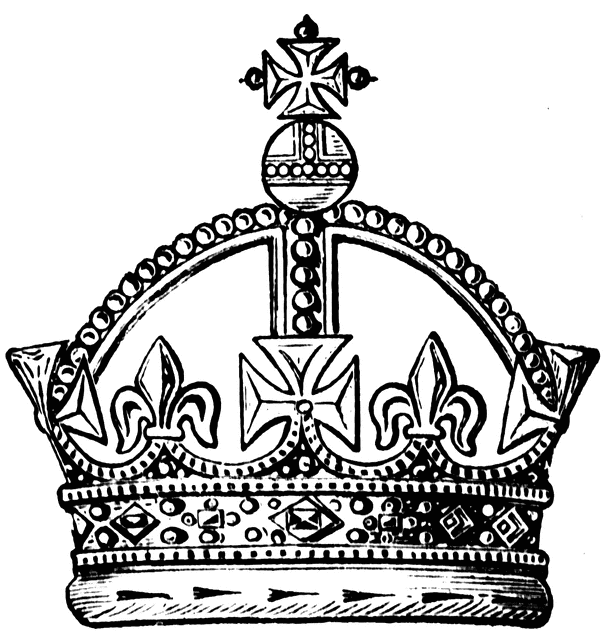I have had a correspondence recently with a bloke who has real problems with the Catholic faith. He writes:
None of my family and friends or any catholic that I know, 100's of them, don't read,study,remember or obey the Bible, they have been taught not to trust it they are religious but don't know Christ. don't know that they can have the assurance and joy of their salvation, their are dozens of verses I could include prove this, have a look for them. Think they get to be with God in heaven because they are such nice people what a joke ie: works gospel. go to church when they feel like it because it is just so boring and the teaching is so irrelivent to thier lives are spiritually dead and have no interest in God they just like to think they do have been fooled into beleiving that their is only salvation in the RCC another lie. The JW and Mormons teach this.It is not hard to have a little sympathy for his opinions, given what he has seen and experienced of Catholics.
In any case, he asked me to give him bible passages as proof of various Catholic teachings, and I thought, to get some extra mileage out of all my hard work, I would republish what I wrote in this forum. Here it is.
________
Dear Friend,
Thank you for contacting me again. I'm glad you're still looking into these matters, and I hope that you will soon find some resolution to them. I will answer your questions as briefly as I possibly can since you're asking specifically for Biblical texts that make reference to these classic Catholic teachings. Nevertheless, I must point out that Catholic teaching is not reached by reading the Bible on its own, but by reading it in the light of the whole tradition of faith which we have received from the apostles.
PurgatoryThe tradition of the Church, by reference to certain texts of Scripture, speaks of a cleansing fire.
1 Cor 3:15 “If anyone’s work is burned, he will suffer loss; but he himself will be saved, yet so as through fire.”1 Pet 1:7 “Your faith, being much more precious than gold that perishes, is tested by fire…”Matthew 12:32: “Whoever speaks against the Holy Spirit, it will not be forgiven him, either in this age or in the age to come.” From this sentence we understand that certain offenses can be forgiven in this age, but certain others in the age to come.
Mary Never SinnedThe Father blessed Mary more than any other created person
"in Christ with every spiritual blessing in the heavenly places" and chose her
"in Christ before the foundation of the world, to be holy and blameless before him in love" cf. Eph 1:3-4.
The angel Gabriel at the moment of the annunciation salutes her as "
full of grace" [Lk 1:28].
It might be argued that Romans 3:23 (“
for all have sinned and fall short of the glory of God”) proves that Mary must have sinned. Nevertheless, we must keep in mind that “all” in this verse does not mean absolutely “all” human beings, because Jesus (who was a human being) was without sin. The Church does not teach that Mary did not need to be saved from sin, but rather that she was saved from the first moment of her conception.
Jesus had no siblingsThis requires an extremely careful reading of the Scriptures. Firstly, it is clear that Mary had no children before Jesus. The Scriptures say that she had no sexual relationship with Joseph
“before” Jesus was born (Matt 1:25
does not say that Mary and Joseph had sex after Jesus was born).
In addition to this when Jesus was 12 years old, Mary and Joseph and Jesus travelled to Jerusalem (Luke 2:41-50). No mention in this story is made of any other younger children. Indeed, it is hard to imagine any other younger children being present, or for that matter, being left behind for such a long period without their parents in Nazareth.
But the closest reading, must be done in comparing the passages that speak of Jesus’ "brothers and sisters” by name, (eg. Matt 13:55, Mark 6:3) and the names of the women at the cross (eg. Matt 27:56, Mark 15:40). From this it is clear that the mother of those who are named as Jesus brothers is a different Mary, quite possibly, a sister-in-law to the mother of Jesus, such that these brothers are Jesus’ cousins. All of this is discussed at length in the following article:
http://www.newadvent.org/cathen/02767a.htm Mary taken up to Heaven in full body and soulRev. 12:1
“Now a great sign appeared in heaven: a woman clothed with the sun, with the moon under her feet, and on her head a garland of twelve stars.”This vision of St. John would seem to indicate that Mary is in heaven. Church tradition tells us that Mary lived with St John till the end of her life, so he would be the one most likely to write about it. Also, just because an event is not written in the scriptures does not mean it did not happen. Peter and Paul were martyred in Rome, but this is not written in scripture (eg. it is not mentioned in Acts). Like their martyrdom, the Assumption happened
after most books of the New Testament were written.
The 7 sacraments are necessary for salvationThe Catholic Church does not teach that all seven sacraments are necessary for salvation. In fact only one sacrament is necessary for salvation and that is baptism, as is proved by the following verses:
1 Peter 3:21
“And baptism…now saves you—not as a removal of dirt from the body, but as an appeal to God for a good conscience, through the resurrection of Jesus Christ”John 3:5
“Very truly, I tell you, no one can enter the kingdom of God without being born of water and Spirit.”Mark 16:16
“The one who believes and is baptized will be saved”Acts 3:38
“Repent, and be baptized every one of you in the name of Jesus Christ so that your sins may be forgiven; and you will receive the gift of the Holy Spirit.”Buying of indulgences to get people out of purgatory450 years ago the Council of Trent forbade the selling of indulgences as a practice condemned by the church.
You can pray to Mary for IntercessionScripture clearly teaches that we should pray for one another. Scripture also clearly teaches we can ask one another to pray for us. The question is whether those who have died still pray for us. This is proven by this following passage:
Rev 6:9-10
“When he opened the fifth seal, I saw under the altar the souls of those who had been slaughtered for the word of God and for the testimony they had given; they cried out with a loud voice, “Sovereign Lord, holy and true, how long will it be before you judge and avenge our blood on the inhabitants of the earth?” This shows that the saints who have died still pray for those who are living.
Praying for dead people The practice is not forbidden anywhere in scripture, and has been a continual practice among God’s people since the time of the Old Testament, as is shown by the following passage:
"Therefore Judas Maccabeus made atonement for the dead, that they might be delivered from their sin" (II Macc 12:46).
Jesus goes down and up from and to Heaven into the Eucharist every time it is prepared.Jesus is not "go down and up from and to Heaven " in the Eucharist. At his ascension Jesus did not become absent from us here on Earth, but remains present in many ways. These include: in his people, in his word, in his ordained representatives, “ where the two or three are gathered together in his name”, and most especially in the Eucharist. That the Eucharist is his body and blood is clearly proven by the words that Jesus himself said:
Matt 26:26-28
“While they were eating, Jesus took a loaf of bread, and after blessing it he broke it, gave it to the disciples, and said, “Take, eat; this is my body.” Then he took a cup, and after giving thanks he gave it to them, saying, “Drink from it, all of you; for this is my blood of the covenant, which is poured out for many for the forgiveness of sins.”All Miracles in the Bible could always be proven and were witnessed by someone.I'm not sure what you mean by this. It is true that all miracles in the Bible were witnessed by somebody, simply from the fact that they have been recorded. I'm not quite sure what you mean when you say they “could always be proven”. The church teaches that it takes faith to recognise a miracle. Not all those who witnessed the miracles recognised them as such.
Why is this not the case for Transubstantiation?In a same way, the miracle of transubstantiation is to be received by faith.
Cannibalism is endorsed by eating Jesus at the Eucharist.The manner in which the body and blood of Jesus is consumed in the Eucharist is not cannibalistic. This is proved from the following passage.
John 6:52
“The Jews then disputed among themselves, saying, “How can this man give us his flesh to eat?” That is, they think that Jesus is talking about cannibalism. Jesus tries to correct their understanding, but does not deny that he is clearly talking about eating his flesh and drinking his blood.
John 6:53-55
“So Jesus said to them, “Very truly, I tell you, unless you eat the flesh of the Son of Man and drink his blood, you have no life in you. Those who eat my flesh and drink my blood have eternal life, and I will raise them up on the last day; for my flesh is true food and my blood is true drink.”Specifically not eating meat on a Friday Not eating meat on a Friday was a pious custom in the church as a way of remembering the death of Jesus. Although no longer required by church law, it is a form of fasting, which is still commended by the church. Jesus always expected his followers to fast, as is shown by the following passages:
Matt 6:17
“But when you fast…”Matt 9:14-15
“Then the disciples of John came to him, saying, “Why do we and the Pharisees fast often, but your disciples do not fast?” 15 And Jesus said to them, “The wedding guests cannot mourn as long as the bridegroom is with them, can they? The days will come when the bridegroom is taken away from them, and then they will fast.”This second passage actually connects fasting to the celebration of the death of Jesus.
Jesus had smooth, intact, unblemished skin when he died on the cross (as he is portrayed in RCC churches ) This is not a teaching of the Catholic Church, nor is it a requirement that portrayals of Christ on the cross be lifelike or historical.
Salvation is by works as well as Grace.This is not a teaching of the Catholic Church. For the clearest teaching of the church on the doctrine of justification see the
Joint Declaration on the Doctrine of Justification in which the Catholic Church, the Lutheran church, and just recently, the Methodist Church, have all agreed on this doctrine:
Christ work on the cross was not enough to pay for our sins we need to add to itThis is not the teaching of the Catholic Church.
Priest are not allowed to marryThe celibacy of priests is a practice of the Western Catholic Church. Eastern Catholic Churches in full communion with the Church of Rome do have married priests. It is not a doctrine, but a discipline which is for the good of the church. It could be altered without any change to the faith of the church. Nevertheless celibacy is commended in the Scriptures as a way of serving God:
Matt 19:12
“For there are eunuchs who have been so from birth, and there are eunuchs who have been made eunuchs by others, and there are eunuchs who have made themselves eunuchs for the sake of the kingdom of heaven.”1 Cor 7:7-8
“I wish that all were as I myself am. But each has a particular gift from God, one having one kind and another a different kind. To the unmarried and the widows I say that it is well for them to remain unmarried as I am.”



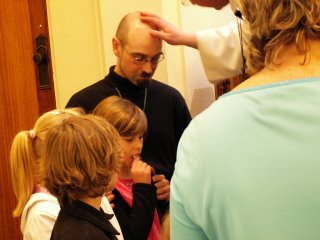
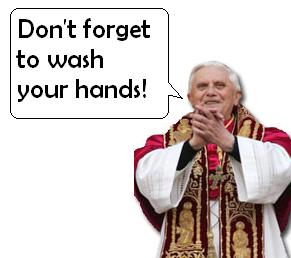
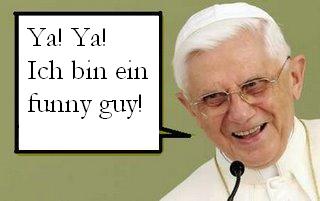
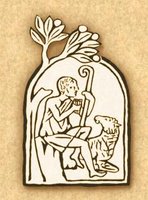

.JPG)






